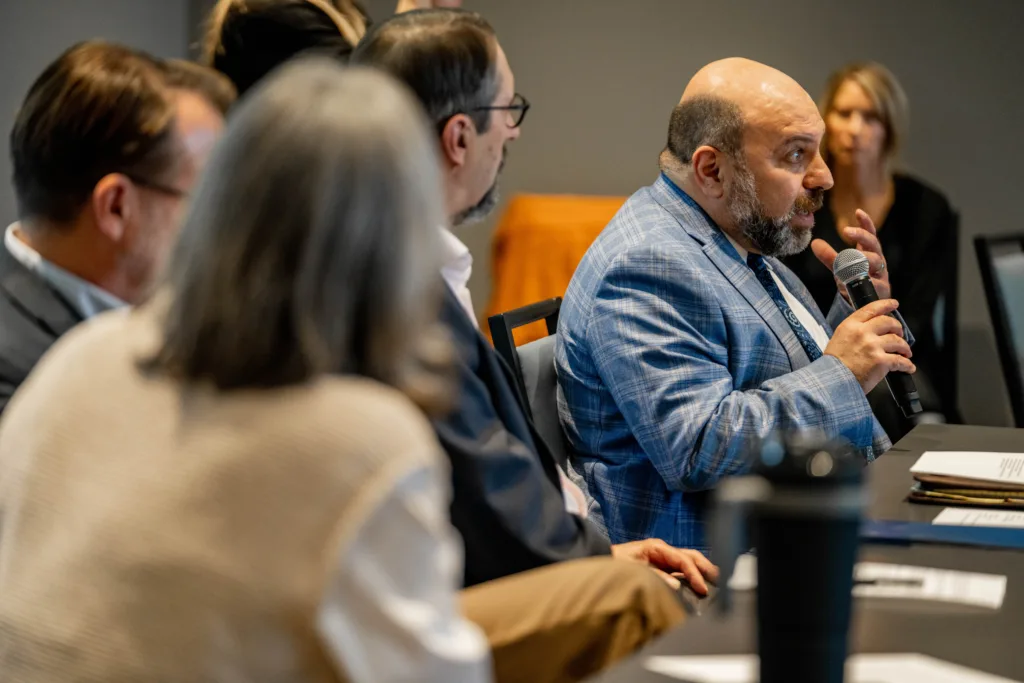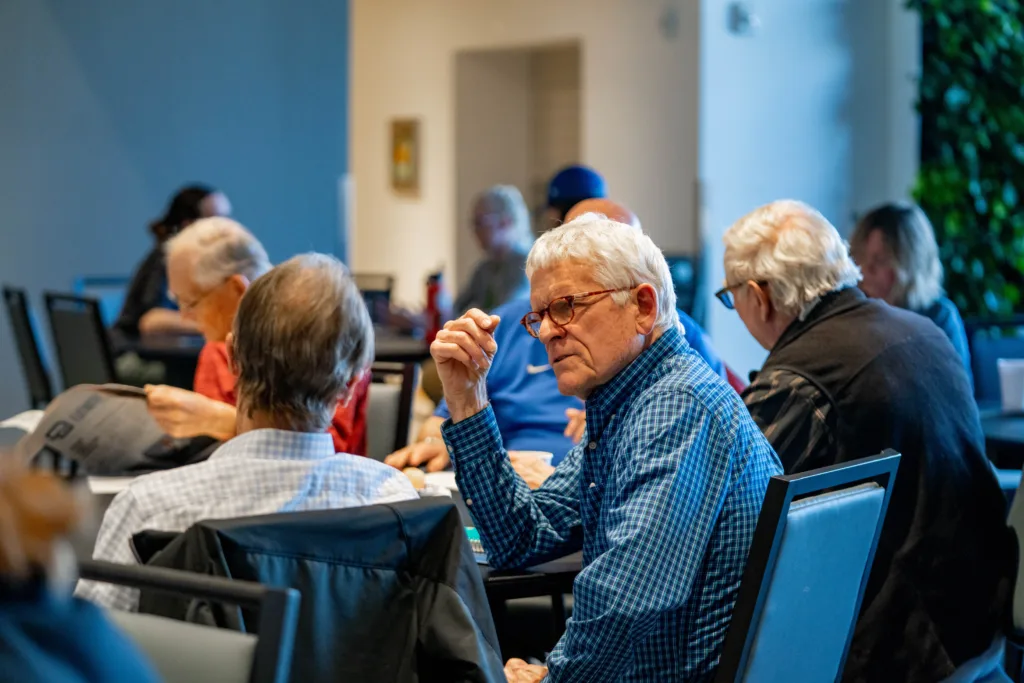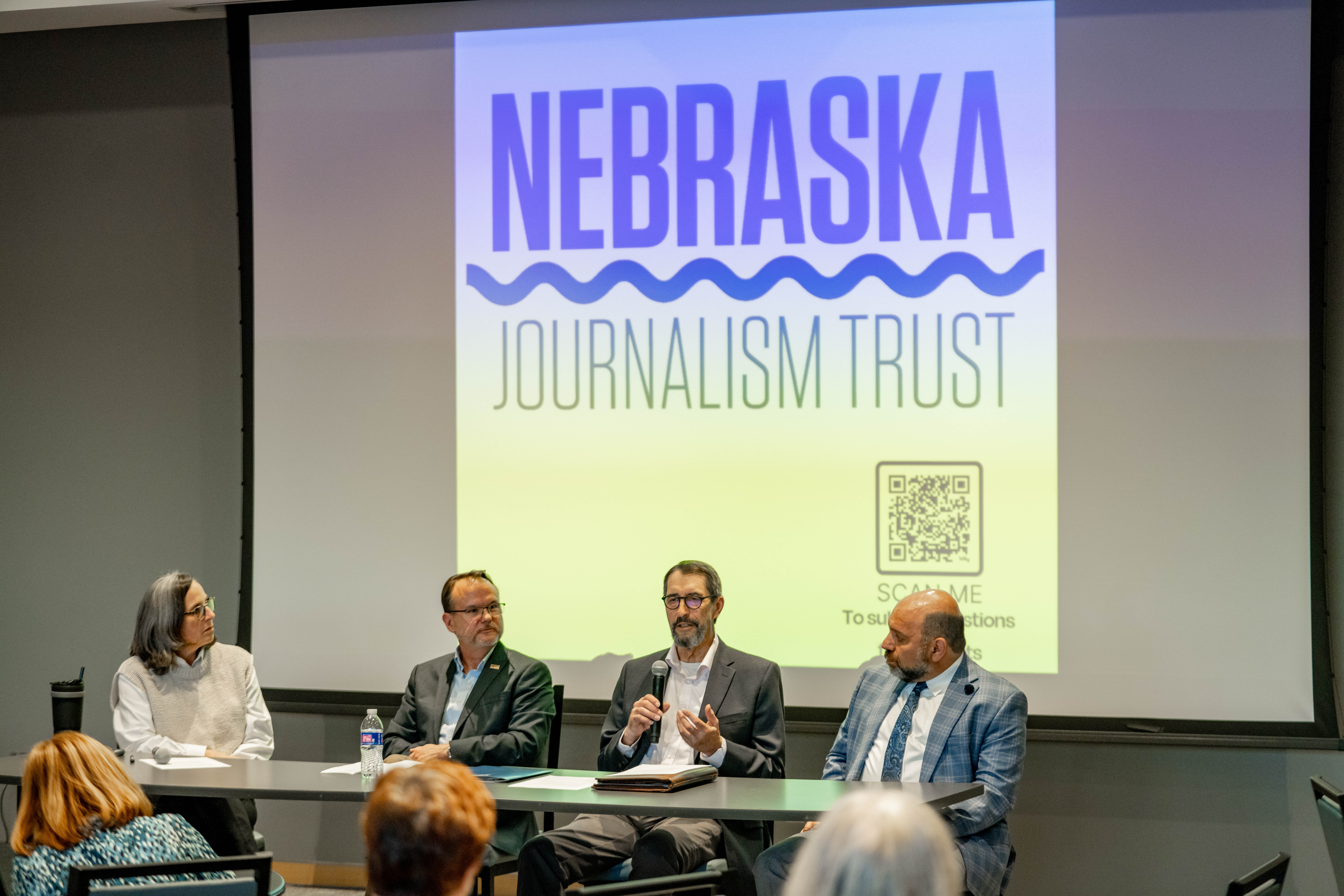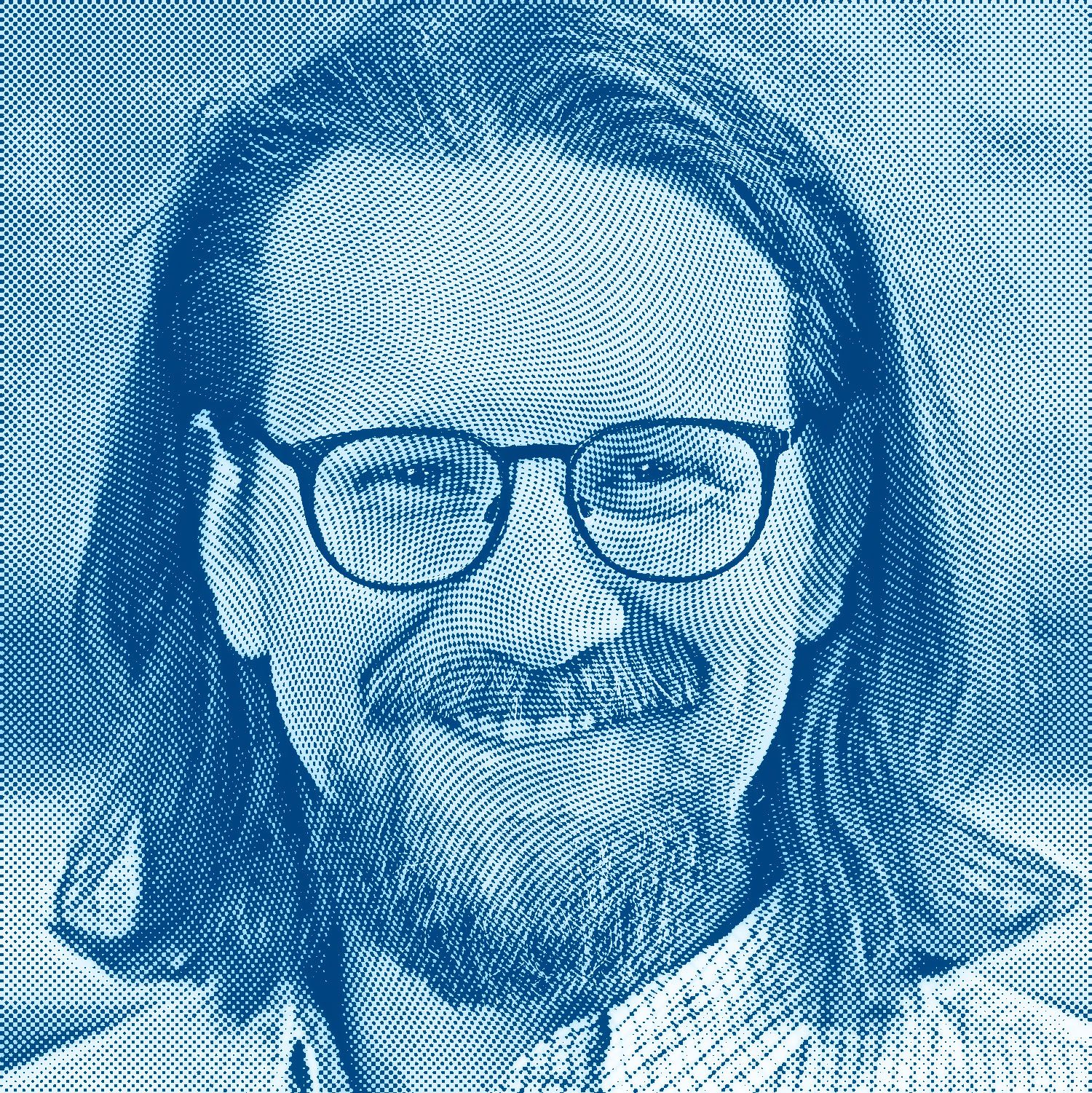Tamir Ayad’s earliest lessons in environmental stewardship came in Islamic Sunday school growing up in Rhode Island.
Cliff Fleener learned about international sustainability goals through teaching Sunday school in a Methodist church.
Two different men, two different faiths, a shared belief: be good stewards of the planet.
Common ground was a consistent theme Tuesday during a discussion on faith and climate change hosted at Omaha’s Tri-Faith Initiative. The sprawling talk ranged from how to engage with communities skeptical of climate change to the energy demands of large data centers sprouting up in eastern Nebraska.
It also involved some difficult acknowledgements.
Wendy Goldberg, executive director and co-founder of Tri-Faith Initiative, alluded to the geopolitical challenges of the moment.
About 1,200 people were killed and 250 hostages were taken in the Oct. 7 attack on Israel by Hamas. In the months since, more than 30,000 Palestinians in Gaza have reportedly been killed in Israel’s military response. Aid groups and international organizations have described the situation as a deepening humanitarian crisis.
In the U.S., advocacy organizations have reported alarming jumps in incidents against both Jews and Muslims – two of the three faiths that have a house of worship on Tri-Faith’s west Omaha campus.
“It is a pretty hard time,” said Goldberg, the event’s moderator.
Another acknowledgment: the politicization of climate change.
Some faith leaders are reluctant to talk about climate change, said Kenneth Winston, executive director of Nebraska Interfaith Power and Light, a non-sectarian organization focused on addressing climate change. That’s especially true in shrinking congregations where pastors feel they can’t afford to risk alienating any remaining members, he said.
Individual members must take it upon themselves to be the driving force for environmental and climate causes in their faith communities, Winston said. It can start with small-scale actions, such as recycling or composting, he said.
On a larger scale, wind and solar projects in Nebraska have faced growing pushback in recent years, with several counties adopting some of the most restrictive zoning regulations in the country.
York County has emerged as one of the latest battlegrounds in this tug-of-war. Omaha Public Power District hopes to build a large solar farm, known as K-Junction, in the county. The project faces pushback from some residents, and the county board is currently weighing zoning regulations that OPPD says would jeopardize the project if approved, the York News-Times reported.
Fleener, OPPD’s vice president of sustainability and environmental affairs, told the crowd at Tri-Faith Tuesday that the utility has people actively working with York County officials.
K-Junction is just one example of the challenges facing the switch to renewable energy.
“We are working as quickly as we can to be able to bring renewable energy to bear for our community,” Fleener said, “but as we all know … you just don’t go somewhere, buy some land and put up a solar field. It’s a long process that requires a lot of community involvement, a lot of regulatory requirement …”
Fleener fielded multiple questions from the audience regarding data centers, massive warehouse-sized buildings with substantial energy demands. Tech firms like Google and Meta have opened centers in Nebraska in recent years.
Fleener said the data centers were not responsible for the delayed closure of a controversial North Omaha coal plant. He credited their cooperation during severe winter weather in January with helping OPPD avoid power outages.
To make progress on climate change, Fleener said people need to listen to one another and engage in respectful dialogue.
“We can’t solve our problems if we’re calling each other names,” he said.

Ayad, a chemical engineer who previously worked in the semiconductor industry, said he believes there is plenty of common ground when it comes to climate. He called back to his days in Sunday school when he learned to “tread lightly” and leave a small footprint.
“This is all God’s creation and we’re part of that creation,” he said.
The discussion on faith and climate was sponsored by Humanities Nebraska and organized by Tri-Faith and the Nebraska Journalism Trust, the parent organization of the Flatwater Free Press.
The event grew out of a conversation with former state climatologist Martha Durr, said Matt Wynn, executive director of the Trust. At the time, Durr was working on a climate report. She brought up how climate intersects with various aspects of life. Wynn said he was particularly struck by the subject of religion and how different faiths approach and view their obligation to addressing climate change.
“It’s something that had never occurred to me,” he said.
Steve Hultman of Crescent, Iowa, said Tuesday’s discussion left him feeling positive. Hultman, a volunteer with the Omaha chapter of the Citizens’ Climate Lobby, came eager to learn what other groups are doing to advocate for climate policies.

He appreciated the emphasis on listening and establishing common ground. He also felt encouraged by the crowd of roughly 40 people in attendance.
Jeanne Miller of Douglas County, one of those fellow attendees, said she wished even more people were present to hear some of the important messages shared Tuesday.
“Try and be open to something that maybe you’re not 100% into,” she said. “It’s not going to hurt you.”



1 Comment
“Tjis is all God’s creation…” is true and He is still in control of His creation. The false religion of climate change is laughable. The climate has been changing since the flood and God’s creation is still in blanace.
If you ask any of the climate change followers “what is the percentage of CO2 in the atmosphere?” Rhey really do not have a clue how insignificant it really is.
Not that I am against renewable enegy sources, but to rely on intermittent sources of power like wind and solar, is foolish. The wind doesn’t always blow and I can guarantee you the sun does not shine for a portion of every day…it is called night. They can be supplemental power sources, but you cannot rely on them 100% of the time.
The most efficient and cleanest power source is nuclear, but the climate zealots are killing off that source.